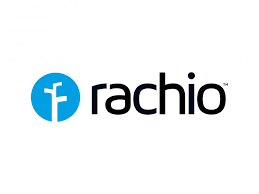In the rapidly advancing world of technology, artificial intelligence (AI) is reshaping nearly every industry, and landscaping is no exception. The rise of AI applications for landscaping is transforming how homeowners, professional landscapers, and garden designers approach lawn care, garden aesthetics, and sustainable practices. AI apps for landscaping are designed to make the process of creating and maintaining beautiful outdoor spaces easier, more efficient, and cost-effective.
In this article, we’ll explore the various ways AI apps are revolutionizing the landscaping industry, from design tools to maintenance support. We’ll also dive into how these apps work, the benefits they provide, and why they are becoming an essential tool for anyone looking to elevate their outdoor spaces.
The Growing Role of AI in Landscaping
AI has emerged as a powerful tool in landscaping by providing new ways to streamline tasks that were once time-consuming and labor-intensive. For homeowners, it offers an easy way to plan and visualize their ideal garden layout. For professionals, it enables more precise and efficient management of outdoor spaces, reducing human error and optimizing resource use.
AI apps for landscaping are not just for creating beautiful garden designs but also for predicting plant growth, recommending the best plants for specific climates, and even automating tasks like irrigation and lawn mowing. By integrating machine learning and data analytics, these apps offer customized solutions tailored to individual needs, whether it’s for a small backyard or a sprawling estate.
As these apps become more sophisticated, they are helping users enhance their landscaping efforts in ways that were previously unimaginable, bringing cutting-edge technology to the world of gardening and lawn care.
Features of AI Apps for Landscaping
AI apps for landscaping come packed with features that simplify the entire landscaping process. Below are some of the core functionalities that make these apps so valuable:
-
Garden Design Tools: AI-powered apps can generate garden designs based on user preferences. By inputting factors such as available space, budget, preferred plants, and aesthetic goals, users can receive personalized recommendations and visualizations of their dream landscapes. These designs are often based on advanced algorithms that analyze user inputs and environmental data.
-
Plant Identification and Recommendations: Many AI apps can identify plants by simply scanning a photo, making it easy to track existing plants in a garden. Furthermore, these apps offer personalized plant recommendations based on the local climate, soil conditions, and maintenance preferences. This feature ensures that users select plants that thrive in their specific environment, resulting in healthier and more sustainable gardens.
-
Irrigation Optimization: One of the significant advantages of AI in landscaping is its ability to optimize irrigation systems. AI apps use weather data and soil moisture sensors to determine the most efficient watering schedule. By adjusting irrigation based on real-time conditions, these apps help conserve water and reduce utility costs, making them environmentally friendly as well as cost-effective.
-
Lawn Care Management: Lawn care can be a complex task involving mowing, fertilizing, aerating, and pest control. AI apps for landscaping help users manage these tasks by providing reminders, recommending optimal times for maintenance, and offering expert advice on how to maintain a lush and healthy lawn. Some apps even integrate with robotic lawn mowers, enabling fully automated lawn care.
-
Virtual Landscaping Assistance: AI apps are capable of creating detailed 3D visualizations of landscapes, helping users visualize how their garden will look before any physical work begins. This virtual assistance makes it easier to experiment with different designs, plant combinations, and layout ideas, allowing users to make more informed decisions.
-
Maintenance Alerts: AI apps track and monitor various aspects of landscaping, from plant health to irrigation systems. They send alerts to users when maintenance tasks need to be performed, such as pruning, fertilizing, or checking for pests. This ensures that landscaping projects are well-maintained and continue to thrive over time.
Benefits of Using AI Apps for Landscaping
The benefits of using AI apps for landscaping are numerous and impact both homeowners and landscaping professionals. Here are some of the top advantages:
1. Improved Efficiency
AI apps streamline landscaping tasks by automating routine chores, such as irrigation scheduling and lawn mowing. This reduces the time and labor involved in maintaining a garden, allowing users to focus on more creative aspects of landscaping.
2. Cost Savings
By optimizing water usage and offering precise plant recommendations, AI apps can save money on water bills and gardening supplies. Automated lawn care systems, like robotic mowers, can also reduce labor costs for landscaping professionals, ultimately lowering the overall expense for clients.
3. Sustainability
AI apps for landscaping promote sustainability by helping users make eco-friendly choices. Whether it’s recommending drought-resistant plants or optimizing irrigation to conserve water, these apps encourage sustainable landscaping practices that reduce environmental impact.
4. Personalized Solutions
AI apps tailor their recommendations based on user inputs, climate data, and soil conditions, ensuring that each landscaping project is personalized to meet the specific needs of the area. This level of customization ensures that users create outdoor spaces that are both beautiful and functional.
5. Enhanced Decision-Making
The data-driven approach of AI apps allows users to make more informed decisions when planning and maintaining their gardens. With access to data on plant health, soil conditions, and climate trends, users can ensure that their landscaping decisions lead to long-lasting and thriving outdoor spaces.
6. Time Savings
For busy homeowners and professional landscapers, AI apps help save time by automating repetitive tasks. Tasks like watering, mowing, and fertilizing can be managed efficiently through AI, leaving users with more time to enjoy their outdoor spaces or focus on other priorities.
Popular AI Apps for Landscaping
Several AI apps on the market cater to different aspects of landscaping. Each app offers unique features designed to simplify the landscaping process. Here are a few of the most popular AI apps for landscaping:
1. LawnStarter

- https://www.lawnstarter.com
- AI-driven lawn care service connecting homeowners with local professionals for mowing, edging, and maintenance.
2. PlantSnap
- https://www.plantsnap.com
- AI plant identification app that recognizes flowers, trees, and fungi with just a photo—perfect for gardeners.
3. Garden Planner (by GrowVeg)

- https://www.growveg.com/garden-planner
- AI-powered garden design tool with drag-and-drop layouts, plant recommendations, and climate-based planning.
4. Yardzen
- https://www.yardzen.com
- AI-enhanced landscaping design platform offering custom yard plans and 3D visualizations for homeowners.
5. Rachio Smart Sprinkler

- https://rachio.com
- AI-driven irrigation system that adjusts watering schedules based on weather and soil data to save water.
How AI Apps Enhance Lawn Maintenance
Lawn maintenance can be a complex and time-consuming task, but AI apps are making it easier than ever to manage. These apps use advanced algorithms to help homeowners and landscaping professionals monitor, track, and maintain lawns effectively. By automating several aspects of lawn care, AI apps reduce the effort involved in keeping a lawn healthy and vibrant.
1. Automated Lawn Mowing
One of the most popular AI applications for landscaping is the robotic lawn mower. These mowers use AI technology to map out the layout of the lawn, navigate obstacles, and mow the grass efficiently. Some AI-powered mowers, like the ones integrated with apps such as Robomow, can even adapt their mowing patterns based on grass growth and weather conditions. The automation of mowing tasks allows homeowners to maintain a well-groomed lawn without lifting a finger.
2. Efficient Irrigation Systems
Water conservation is a crucial aspect of lawn care, especially in areas prone to droughts or those with limited water resources. AI apps like Rachio, mentioned earlier, use weather forecasts, soil moisture data, and real-time sensor inputs to optimize irrigation systems. These systems can detect when rain is expected and adjust watering schedules accordingly, ensuring that lawns are never overwatered. This not only conserves water but also prevents water wastage and promotes healthier grass growth.
3. Fertilization and Pest Control
AI apps help optimize the use of fertilizers and pest control products. By analyzing factors like soil health, weather patterns, and plant species, AI apps can recommend the right types and quantities of fertilizer to use at specific times during the year. They can also help users identify potential pest problems early on, providing suggestions for eco-friendly treatments to prevent damage to the lawn or garden.
4. Lawn Health Monitoring
AI-powered landscaping apps are also capable of monitoring the overall health of a lawn. These apps use sensors and data analytics to track variables such as soil moisture, nutrient levels, and grass growth. If any issues arise, such as dry patches or nutrient deficiencies, users receive immediate notifications and actionable advice to remedy the situation. This proactive approach to lawn care ensures that problems are addressed before they become costly or irreversible.
Sustainability and Environmental Benefits of AI in Landscaping
In recent years, sustainability has become a major concern for gardeners, landscapers, and homeowners. Traditional landscaping practices often involve excessive water usage, the overuse of fertilizers and pesticides, and other environmentally harmful practices. However, AI apps for landscaping are helping users adopt more sustainable practices that reduce their carbon footprint and promote environmental well-being.
1. Water Conservation
AI apps for landscaping, particularly those focused on irrigation, play a significant role in water conservation. By using weather data, soil moisture sensors, and advanced algorithms, these apps help homeowners water their lawns and gardens more efficiently. The ability to adjust watering schedules based on real-time data ensures that water is only used when necessary, reducing waste and helping conserve a precious resource.
2. Low Maintenance and Eco-friendly Landscaping
AI apps help users choose plants that are well-suited to their local climate and soil conditions, resulting in low-maintenance gardens that require fewer chemicals and interventions. Many apps also recommend native plants, which are not only easier to care for but also support local ecosystems and biodiversity. By focusing on eco-friendly practices, AI apps help reduce the need for harmful pesticides and fertilizers, contributing to healthier soil and water systems.
3. Optimized Energy Use
AI-driven robotic mowers, smart sprinklers, and other landscaping tools are designed to minimize energy consumption. By operating efficiently and only when necessary, these tools reduce the amount of energy used for lawn maintenance, promoting energy conservation. This is especially important in areas where energy resources are limited or where the carbon footprint is a key consideration.
4. Promoting Biodiversity
AI apps help create environments that encourage biodiversity by recommending plants that attract pollinators like bees and butterflies. In addition, some AI tools analyze soil health and environmental conditions to suggest the best plant combinations that promote a thriving ecosystem. This focus on biodiversity helps create healthier and more sustainable outdoor spaces.
How AI Apps Are Transforming Garden Design
Garden design has always been an art form, but AI is taking it to the next level by providing tools that make the design process easier, more efficient, and more personalized. Whether you’re a novice gardener or an experienced landscaper, AI apps can help you visualize, plan, and execute your dream garden with ease.
1. Custom Garden Layouts
AI apps like Garden Planner and Yardzen provide users with the ability to design their gardens virtually. These apps take into account the user’s specific preferences, such as space size, color schemes, and plant types, and generate customized layouts that meet these goals. By offering drag-and-drop tools and interactive features, these apps allow users to experiment with different designs and see how they would look in real life.
2. 3D Visualization
One of the most exciting features of AI-powered garden design apps is their ability to create detailed 3D visualizations. These visualizations offer users a realistic preview of what their garden will look like once the design is completed. Whether you’re planning a new landscape from scratch or renovating an existing one, 3D visualizations allow you to experiment with various designs, plant combinations, and materials before making any decisions.
3. Plant Recommendations
AI apps not only assist in designing layouts but also offer plant recommendations based on the local climate, soil type, and user preferences. These apps analyze data on thousands of plant species and match them with your garden’s conditions to ensure optimal growth. The plant recommendations take into account factors like sunlight, water requirements, and blooming seasons, ensuring that users choose plants that will thrive in their specific environment.
4. Sustainable and Eco-Friendly Designs
AI-driven garden design tools prioritize sustainability by recommending eco-friendly landscaping options. For example, the apps may suggest low-water-use plants or drought-resistant species, helping to conserve water and reduce maintenance costs. Some tools also encourage the use of native plants, which support local ecosystems and help to foster biodiversity.
The Future of AI Apps for Landscaping
As AI technology continues to evolve, the future of AI apps for landscaping looks incredibly promising. Here are a few trends and developments that are likely to shape the future of landscaping:
1. More Integration with IoT Devices
The Internet of Things (IoT) is already making its way into landscaping through smart sensors and devices that monitor soil moisture, temperature, and other environmental factors. In the future, we can expect AI apps for landscaping to integrate even more seamlessly with IoT devices, providing real-time data and more precise recommendations for lawn care and garden maintenance.
2. Advanced AI Algorithms for Predictive Maintenance
AI apps will continue to improve their ability to predict and prevent problems in landscaping. For instance, by analyzing weather patterns, soil conditions, and plant health, AI apps will be able to predict potential issues, such as pest infestations, plant diseases, or watering needs, before they arise. This proactive approach will lead to healthier, more sustainable gardens and lawns.
3. Increased Use of Augmented Reality (AR)
Augmented reality (AR) could play a major role in the future of landscaping apps. By using AR technology, users could visualize how different plants, trees, and garden structures would look in their outdoor spaces before making any decisions. This technology would allow for even more detailed and immersive design experiences.
4. Greater Personalization
AI apps will become even more personalized, using advanced algorithms to understand users’ preferences, climate conditions, and specific gardening goals. This means that the recommendations, designs, and advice offered by the apps will be highly tailored to each user’s unique needs, making the landscaping process more efficient and enjoyable.
Conclusion
AI apps for landscaping are revolutionizing the way homeowners, professionals, and urban planners approach outdoor space design and maintenance. These advanced applications leverage artificial intelligence to provide data-driven insights, automate tasks, optimize resource management, and enhance the overall efficiency of landscaping projects. From AI-powered garden planning and smart irrigation systems to robotic lawn mowers and sustainable urban landscaping, these technologies offer immense benefits in terms of convenience, cost savings, and environmental sustainability.
For homeowners, AI-driven landscaping apps simplify garden design, plant selection, and maintenance, making it easier to achieve a beautiful, thriving outdoor space with minimal effort. Landscaping professionals benefit from AI’s ability to streamline project management, improve client communication, and optimize resource allocation, leading to more successful and cost-effective projects. Urban planners and environmentalists can use AI technology to create smart, green spaces that contribute to climate resilience and improve the quality of life in urban areas.
However, despite the advantages, AI-based landscaping tools come with challenges, including adoption barriers, dependence on accurate data, and potential maintenance complexities. Overcoming these challenges will require ongoing technological improvements, increased accessibility, and greater awareness of AI’s capabilities within the landscaping industry.






